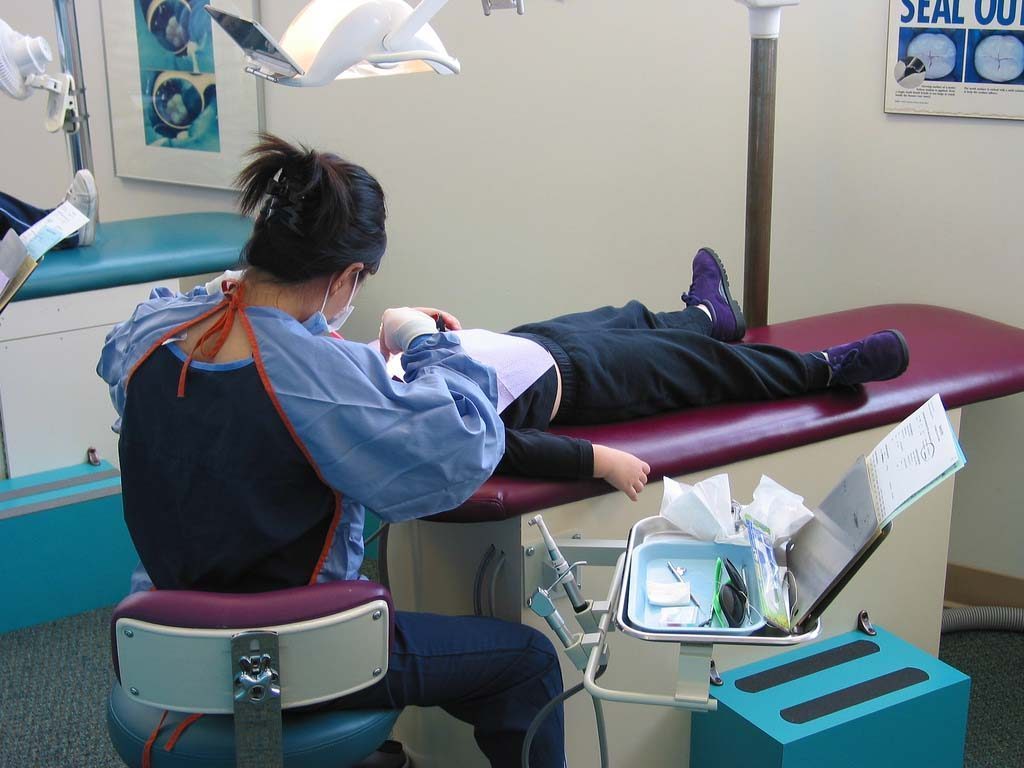
Officials running Qatar’s new health insurance scheme Seha have announced an expansion of coverage to include basic dental treatment, as the oral health of the country’s young people ranks among the worst in the Gulf.
The coverage takes effect today for all Qataris, who were automatically enrolled in the Seha (Arabic for health) network earlier this year. All expats are expected to be covered under the universal healthcare system by the end of next year.
The basic dental services and emergency treatments will be provided at a number of hospitals, clinics and specialized dental centers that have signed up to the scheme.
Previously, free healthcare was only available for Qataris at state hospitals and clinics.
However, the program does not yet cover dental treatment at clinics run by Hamad Medical Corp. and Primary Health Care Corp. facilities. Qataris must present their health card for now to use these services, the National Health Insurance Company (NHIC) said in a statement.
The national health insurance scheme was first launched in July of last year, covering Qatari women aged 12 years old and above, to receive free treatment for gynecology, obstetrics, maternity and other women-related health issue.
It is being gradually rolled out in stages.
The government has committed to paying for the healthcare of its citizens, while employers will be required to cover insurance premiums for expats, who are expected to be insured by 2015.
More clinics
Seha has also announced that more polycenters and health clinics have joined its network, news that may receive a mixed reaction from residents.
Many patients are already reporting long queues and waiting times of several hours at private clinics that joined the Seha network. In April of this year, when all Qataris were granted coverage, many centers strained to accommodate up to thousands of new patients.
Dental clinics that are covered by the scheme for Seha members include Al Ahli Hospital, Al Emadi Hospital, Al Esraa Medical Center, Doha Clinic Hospital, Al Hayat Medical Center, Al Jazeera Medical Center, Apollo Clinic, Atlas Medical Center, Atlas Polyclinic, Bin Muftah Medical Center, Future Dental Center, Future Medical Center and Ocean Medical Center.
Private dentists that have recently joined include three branches of the Gulf Dental Center and four branches of Madina Dental Center, Teba Specialized Dental Center, Dr. Marwan Kalla Denter Center, Doha Specialized Dental Center and Najat Dental Center.
Meanwhile, three new clinics have recently tied up with Seha to provide both dental and wider medical care. They are Al Shefa Polyclinic, Al Salam Medical Polyclinic Center and Al Shorook Medical Center.
A full list of providers can be found here.
Treatment covered
While free treatment will be provided for emergency and basic dental procedures, cosmetic work and tooth whitening will not be included in the scheme.
Additionally, patients who require indirect veneers, tooth implants and orthodontic work will need to get pre-authorization from Seha and may need to obtain a second opinion to confirm that the work is medically necessary.
For some work, where there is a cheaper option or a more expensive procedure, and the patient chooses to have the latter, Seha will cover costs up to QR5,000 per year. The patient has to pay 10 percent of the additional treatment cost over QR5,000.
Qatari nationals who want to use Seha’s services should present their Qatar ID card when visiting a network provider and, during their first visit, provide details of their residential address.
Qatar’s dental health
Free dental care will ideally go some way in tackling Qatar’s poor record of oral health.

A recent study showed that a staggering 85 percent of 12-14 year old children in Qatar had dental caries (tooth decay or cavities). That’s the second worst in the GCC, behind Saudi Arabia, where 92 percent of 12-year-olds had caries.
The report, which was authored by Qatar Dental Society President Mohammed Sultan Al-Darwish, included a survey of more than 2,000 young teenagers between 2011 and 2012. Almost two-thirds were Qatari and the remainder were non-Qatari.
Girls were found to have a poorer rate of dental health than boys, and the number of caries for both appeared to increase with age.
Al Darwish said the reasons for Qatar’s poor dental health included commonplace snacking on sugary treats (99.4 percent of those interviewed regularly did so), and a lack of basic understanding about dental hygiene.
He said that there was also not a culture of visiting the dentist for regular checkups, as two-thirds of those interviewed only went to the dentist when they had pain.
Thoughts?







